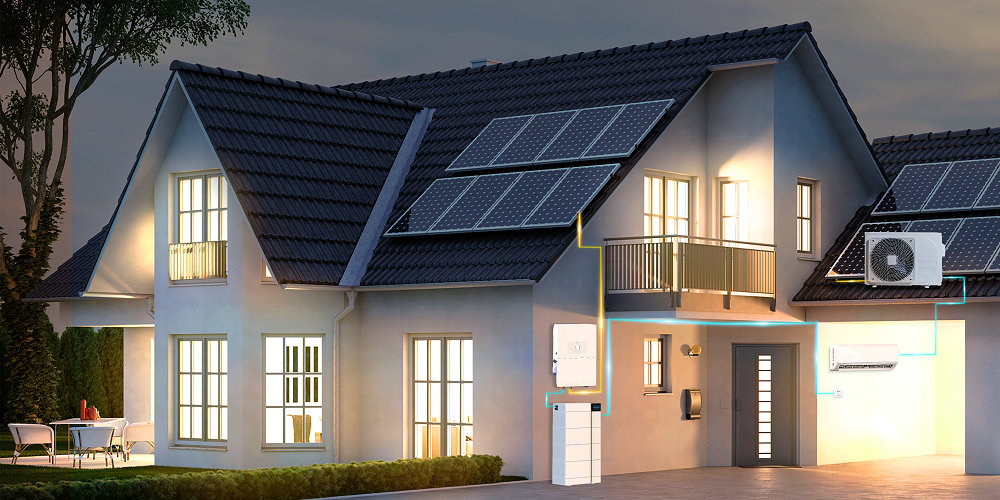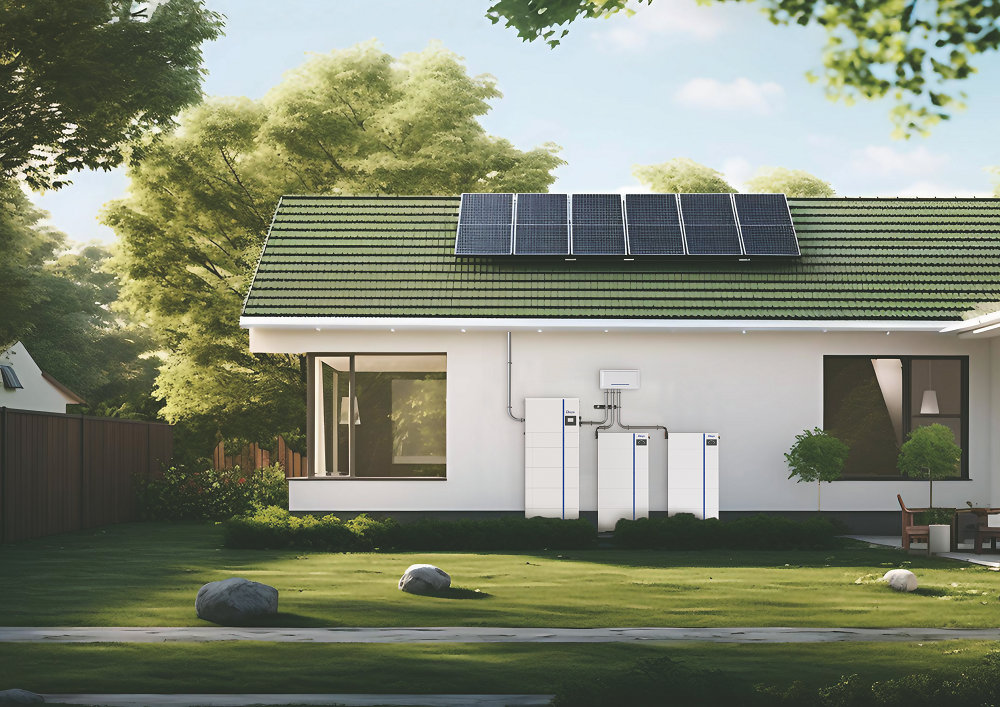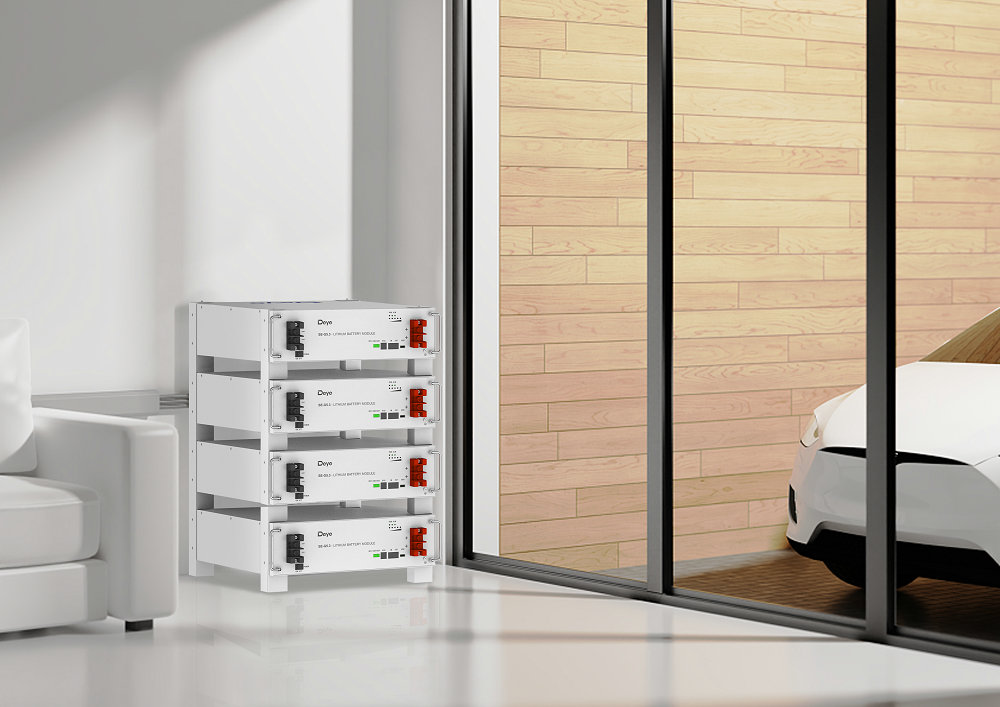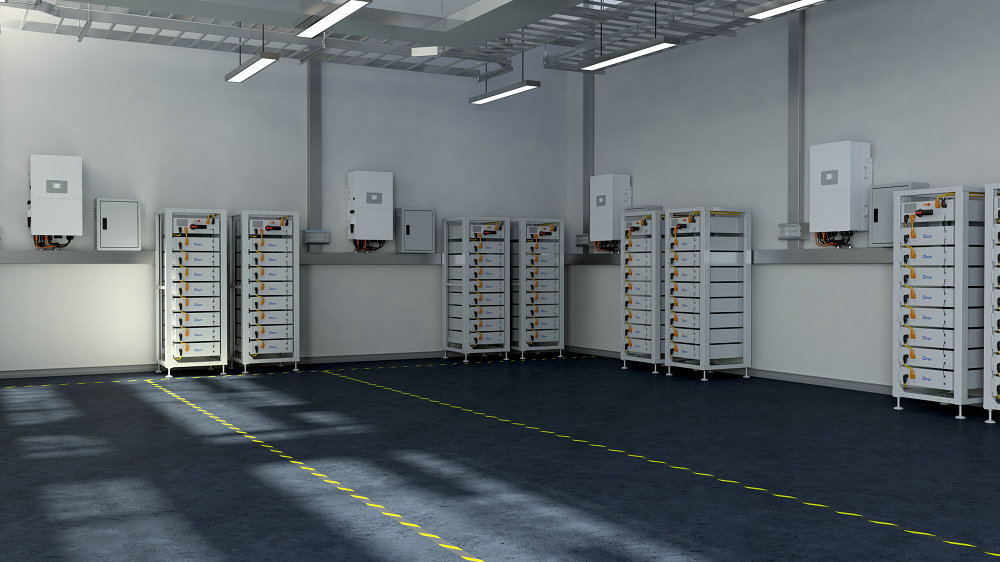
What Is Home Backup Power?
Fundamental Concepts of Backup Batteries
A home backup power system provides electricity to your household during power outages or when the grid is unavailable. It usually consists of a battery or generator that stores energy and delivers it to your appliances when needed.
Home backup batteries are designed to store electricity from either the grid or your solar panels for later use. These systems ensure continuous power supply during blackouts, keeping your electronic devices and appliances running without interruption.
Battery Power Vs Grid Power
Battery power and grid power have distinct advantages and disadvantages. However, with battery power, you store energy to use when power goes out or to supplement your grid electricity when rates are high. This can result in cost savings on your energy bills.
Grid power, on the other hand, provides a continuous supply of electricity as long as the infrastructure is operational but makes you dependent on a central source of energy and subject to power outages.
How Solar Batteries Work
You might wonder how solar power storage batteries work. Solar panels convert sunlight into electricity, which can be used immediately or stored in a battery storage system for later use. When the sun isn’t shining or during a power outage, the solar battery backup provides a continuous flow of electricity to power your home, making you less reliant on grid power.
Here’s a brief rundown of the process:
- Solar panels generate electricity from sunlight.
- Electricity is stored in the backup battery or used directly by your home appliances.
- When the grid is unavailable, your home uses electricity from the battery backup.
Why You Should Have Backup Power at Home
Having backup power at home offers several benefits. It ensures uninterrupted power supply during emergencies, protecting your valuable electronics, appliances, and data. Home battery backup systems can also reduce your dependence on the grid, potentially saving you money on energy costs.
Another significant advantage of having a home battery backup system is improved energy security during periods of peak demand. These are times when many people are using electricity, such as during extreme weather conditions or natural disasters, by having a backup battery system.
In summary, a home battery backup system is an efficient and reliable solution for safeguarding your household against power outages and fluctuations. By understanding the fundamental concepts, the differences between battery and grid power, and the benefits of backup power, you can make an informed decision about the best option for your home.
Types of Home Backup Batteries
When looking for a home backup battery system, it’s essential to understand the different types of available batteries. In this section, we’ll cover the most common types, focusing on Lead-Acid, Lithium-Ion, Nickel-Cadmium, and LiFePO4 batteries.
Lead-Acid Batteries
Lead-acid batteries have been around for a long time and are well-known for their use in automotive applications. They are an affordable option for home backup battery systems. With proper maintenance, they can last for years. However, they tend to be heavy and bulky, making them less suitable for compact installations. Moreover, they have a lower energy density and shorter cycle life compared to other battery technologies.
Lithium-Ion Batteries
Lithium-ion batteries are currently the most popular choice for home backup systems. They have a high energy density, which allows for a more compact installation. Their long cycle life and low maintenance requirements make them an attractive option for homeowners. There are different chemistries within the lithium-ion family, such as Nickel Manganese Cobalt Oxide (NMC), which is common in home battery systems.
Nickel-Cadmium Batteries
Nickel-cadmium batteries were once a popular choice for home backup systems, but they have largely been replaced by lithium-ion batteries. They are known for their durability and long cycle life, but they suffer from a memory effect, which can decrease their effective capacity over time. Another drawback is their environmental impact, as they contain toxic cadmium, making disposal a concern.
LiFePO4 Batteries
LiFePO4 (Lithium Iron Phosphate) batteries are a subtype of lithium-ion batteries known for their high thermal stability and safety. They typically have a longer cycle life and better resistance to temperature fluctuations compared to other lithium-ion chemistries. They also have a lower energy density, resulting in larger and heavier batteries for the same capacity.
How to Choose a Suitable Backup Battery for Your Home

When selecting a backup battery for your home, there are several factors to consider ensuring you find the most appropriate system. In this section, we’ll focus on three essential aspects: Battery Capacity, Battery System Lifespan, and Battery Warranty.
Battery Capacity
One critical aspect to consider when choosing a home backup battery is its capacity, which refers to the amount of energy the battery can store and supply in case of power outages. The battery’s capacity will determine how long your home can remain powered during an outage. To evaluate the right size for your needs, consider your household’s average daily electricity consumption and the desired number of hours you want backup power.
Battery System Lifespan
A backup battery’s lifespan is an essential factor to take into account as it defines how long your investment will last. Batteries can have varying lifespans depending on their technology, quality, and usage patterns. To estimate a battery’s expected lifespan, review the manufacturer’s specifications, and look for feedback from current users. Remember, a longer lifespan means more years of reliable service and less hassle in replacing your battery system.
Battery Warranty
Lastly, pay attention to the warranty offered by the manufacturer.
A warranty is a form of protection for your investment, as it covers any defects or issues that may arise during the specified period. When comparing warranties, consider the length of the warranty coverage, what it includes (such as parts and labor), and any conditions or exclusions that may apply. A more comprehensive warranty can give you greater peace of mind and ensure you’re choosing a reputable brand.
Installation and Maintenance of Backup Batteries
Installation by a Licensed Electrician
When installing a home battery backup system, it’s essential to work with a licensed electrician. They will ensure that your system meets all safety standards and is properly connected to your home’s electrical grid. To start, the electrician will:
- Assess your home’s energy needs and recommend the appropriate battery size and capacity.
- Install the battery in a suitable location, typically a basement or utility room.
- Wire the battery to your home’s electrical panel through a transfer switch or power input.
- Connect the battery to your solar panels or other charging sources if applicable.
Remember, proper installation is crucial for the safe and efficient operation of your backup battery system.
How to Set Up a Battery Backup System
Setting up a battery backup system can seem daunting, but with the right guidance, you can achieve efficient and seamless energy storage in your home. Here’s a brief overview of the steps to help you get started:
- Evaluate your energy needs: Assess your home’s energy consumption patterns to determine the capacity and type of battery backup system required.
- Choose the right battery system: Consider the Low Voltage Series (LV) or High Voltage Series (HV) from the selection of Deye Group’s products, with both AC and DC-coupled options available.
- Integrate with your solar system: Connect your chosen battery backup system to your solar panels, which will enable self-consumption, time-of-use shifting, demand charge reduction, backup power, and off-grid applications.
- Set up monitoring: Utilize remote monitoring to keep tabs on your battery system’s status and control its operation from anywhere.
- Ensure proper protection and maintenance: Use the Intelligent Battery Management System (BMS) that actively balances cells and monitors battery parameters, ensuring the safe operation of your system.
Furthermore, to maximize your energy security, it’s essential to maintain your backup battery system. Some best practices for proper maintenance include:
- Regularly inspecting your battery for any visible damage or wear.
- Monitoring the battery capacity and performance to ensure it’s ready for use during an emergency.
- Consult with your licensed electrician for any necessary repairs or replacements.
Taking these steps will help ensure your home battery backup system is ready to provide reliable power when you need it most.
Pick Your Own PowerHouse

Choosing the right battery backup system for your home is crucial to ensure you have a reliable and efficient energy storage solution. With Deye Group’s 20 years of experience in PV systems, you can trust high-quality lithium iron phosphate (LFP) solar battery systems for safe, long-lasting, and efficient energy storage. Here are some features to consider when picking your powerhouse:
Safety: Deye Group’s LFP batteries are non-toxic, stable, and safe, with no risk of thermal runaway.
Longevity: You can expect a 10+ year lifespan from these batteries, as they retain 70% capacity after 6,000+ cycles.
Flexibility: With modular options, battery capacity can be scalable from 5kWh up to 360kWh, suiting a variety of needs.
Efficiency: Their solar battery systems boast high round-trip efficiencies of up to 95%.
Certifications: Deye Group’s products hold multiple certifications, including UL, CE, UN38.3, and IEC62619.
DEYE ESS AI-W5.1-B
AI-W5.1-B is an exemplary lithium iron phosphate solar battery, providing superior safety, performance, and adaptability, perfectly fitting both residential and commercial uses for renewable energy storage. It boasts a modular composition for effortless system growth and the clever BMS facilitates remote surveillance and regulation.
This battery’s modular design and stackable casings allow for flexible scalability from 5kWh to 184kWh of storage capacity. The included DC breakers streamline the process of paralleling as many as 36 battery modules. Plenty of versatility is provided by both floor and wall mounting alternatives, making it simple to tailor the system to fit your solar array and runtime demands.
DEYE ESS BOS-G(HV)
The DEYE ESS BOS-G(HV) utilizes safe LiFePO4 cathode battery chemistry with excellent performance, long cycle life, and low self-discharge.
The battery can stay charged for up to 6 months without use. Modules can be paralleled to expand capacity and power. The system supports USB/WiFi upgrades and is compatible with Deye inverters for remote monitoring and control. Temperature sensors monitor battery cells, connectors, and electronics to prevent issues from extreme heat or cold. The operating temperature range is -20°C to 55°C with excellent performance across conditions.
DEYE ESS SE-G5.3(LV)
The SE-G5.3(LV) supports high discharge power and peak current draws. It uses a sturdy IP20 rated enclosure and natural cooling for reliable operation. The operating temperature range is wide at -20°C to 55°C.
A modular design allows easy system expansion. Up to 64 units can be paralleled to achieve a total capacity of 340kWh. The modules feature auto-networking and plug-and-play operation. Maintenance is easy with support for remote monitoring, firmware upgrades via USB drive, and automatic IP addressing.
When it comes to power outages, they can happen at any time and cause disruptions in your everyday life. Whether they’re just for a few minutes or multiple weeks, having backup power for your home or business is essential. With companies like DEYE ESS offering portable power solutions, you can rest assured that you’ll have the power you need during a blackout.
Why Choose DEYE ESS
Deye Group was founded in 2000 and is a leading manufacturer of photovoltaic and energy storage solutions. Headquartered in Ningbo, China, Deye has three production bases in Beilun and Cixi covering 388 acres with over 400,000 square meters of plant area.
- Products and Services
We provide complete photovoltaic power generation systems for residential and commercial applications. Our key products include solar panels, inverters, mounting systems, and solar energy storage systems. DEYE ESS‘s subsidiary Deye Energy Storage Technology focuses on lithium-ion battery systems and battery management systems. Our energy storage products are optimized for solar energy storage and grid applications.
- Global Presence
We sell our products in over 50 countries worldwide and have established overseas service centers in 8 locations to support the global customer base.
Our production capacity allows us to manufacture over 10,000 energy storage units annually. We aim to make top-quality renewable energy products accessible worldwide and our mission is to become a leading global supplier of photovoltaic and energy storage solutions.
If you want to install an energy storage battery in your home, don’t hesitate to come to us! We will provide you with more professional service and better products.
Frequently Asked Questions
What is the cost of a home battery backup system?
Generally, home backup power mainly consists of two kinds: portable power stations and solar generators. The cost of a home battery backup system varies depending on the battery capacity, brand, and additional equipment required for your specific needs. Typically, the price range for a solar battery bank offering 10 to 25 kilowatt-hours of energy can be from $10,000 up to $25,000. The U.S. Department of Energy also estimates solar batteries may cost from $12,000 to $22,000. Keep in mind that installing solar panels and choosing a battery with an energy management system can optimize your energy usage and potentially save you money in the long run.
How long can a home battery backup provide power?
The duration that a home battery backup can provide power depends on the battery capacity and the energy consumption of your household appliances. Typically, a 10-15 kWh battery can supply power for at least 24 hours if you’re only using basic appliances. However, combining multiple batteries or selecting a higher capacity option can increase this duration significantly. It’s important to choose a battery system with adequate capacity to support your power needs during a potential outage.
Can I build a DIY home battery backup?
Yes, you can build a DIY home battery backup system, but it’s important to consider the complexity and risks involved in such a project. Building a safe and effective home battery backup requires a good understanding of electrical systems, battery technology, and local regulations. If you have experience with electrical work, you may be able to design and construct a DIY system. However, if you’re inexperienced or unsure about any aspects of the project, it’s highly recommended to consult with a professional or opt for a pre-built backup solution from a reputable manufacturer.
